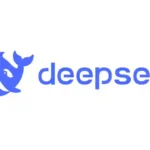Key Highlights:
- DeepSeek, a Chinese AI app, is generating significant interest due to its low-cost success.
- The app has faced bans in various countries over data privacy and security concerns.
- OpenAI has accused DeepSeek of intellectual property theft, causing controversy in the AI industry.
In the rapidly advancing world of artificial intelligence (AI), new players often stir up debates and discussions. DeepSeek, a Chinese AI application, has emerged as a prominent competitor to industry giants like OpenAI’s ChatGPT and Google’s Gemini. Its remarkable success has raised eyebrows, particularly since it was developed with a relatively low budget of just $6 million, a fraction of what companies like OpenAI and Google have spent on similar technologies. Despite its successes, DeepSeek has been mired in controversy and challenges, facing scrutiny and bans from various countries and organizations around the world.
DeepSeek’s rise to fame has been swift, but it hasn’t been without its share of issues. Recently, it was announced that the DeepSeek R1 model will be integrated with Microsoft’s Copilot and Snapdragon X-powered PCs. While this development shows the app’s growing influence, it has also sparked concerns, especially about its origins and the data privacy risks it poses. With mounting challenges to its operations, many countries have moved to restrict access to DeepSeek, citing national security and ethical concerns.
Also Read
DeepSeek Banned: The Global Backlash
DeepSeek’s growth has been overshadowed by several bans and restrictions imposed by governments and organizations worldwide. One of the most notable decisions came from the US Navy, which issued an official warning to its personnel against using DeepSeek’s AI. The ban was enforced due to concerns over security and the app’s uncertain origins. Similar warnings have been issued by the US Congress, further escalating the controversy surrounding the Chinese AI company. These actions highlight the growing concern over the potential misuse of DeepSeek’s AI technology.
Meanwhile, Italy’s data protection authorities have also banned DeepSeek, citing a lack of transparency regarding the app’s handling of user data. Taiwan joined the list of countries restricting the use of the app, prohibiting public sector workers from accessing DeepSeek due to fears of data leaks to the Chinese government. Furthermore, Belgium and Ireland have demanded answers from the company regarding how it handles European users’ personal data. These actions underline the rising global unease about the app’s compliance with local data privacy regulations.
In the United States, the controversy intensified when NASA followed suit, blocking DeepSeek’s AI from its systems and instructing its employees not to use the app. The state of Texas took similar steps, issuing an executive order to ban the use of DeepSeek on government-issued devices. The primary concern here is the potential threat posed by foreign actors gaining access to sensitive government data through the app. While the UK has yet to impose an outright ban, it has warned users about the potential data risks associated with using DeepSeek.
OpenAI Accuses DeepSeek of Intellectual Property Theft
Beyond the security and data privacy concerns, DeepSeek is also at the center of a legal dispute. OpenAI, the company behind ChatGPT, has accused DeepSeek of intellectual property theft. OpenAI claims that DeepSeek used a distillation process to reverse-engineer its technology and create a similar AI model. The accusation has sparked debates within the AI community, with many questioning the ethics of DeepSeek’s methods.
Adding fuel to the fire, social media has been abuzz with users suggesting that DeepSeek is essentially a rebranded version of ChatGPT, with minor changes. This has led to widespread memes and discussions online, casting further doubt on the originality of DeepSeek’s AI. Despite the controversy, some users continue to praise the app for its performance, though the legal and ethical concerns are far from resolved.
DeepSeek and the Future of AI
As DeepSeek continues to develop its AI technology, it faces significant hurdles that could impact its future growth. The ongoing investigations and legal challenges, coupled with the global backlash, suggest that the company’s path forward may not be as smooth as it had hoped. The app’s success, while impressive, has been overshadowed by concerns over security, data privacy, and intellectual property issues. It remains to be seen whether DeepSeek will be able to navigate these challenges and secure a long-term presence in the AI market.
In conclusion, DeepSeek has quickly gained attention for its innovative approach to AI, but its rapid rise has come with a fair share of controversy. From being banned in multiple countries to facing accusations of intellectual property theft, the app’s journey is far from over. It will be interesting to see how the company addresses these issues and whether it can continue to thrive in a competitive and often volatile industry.







